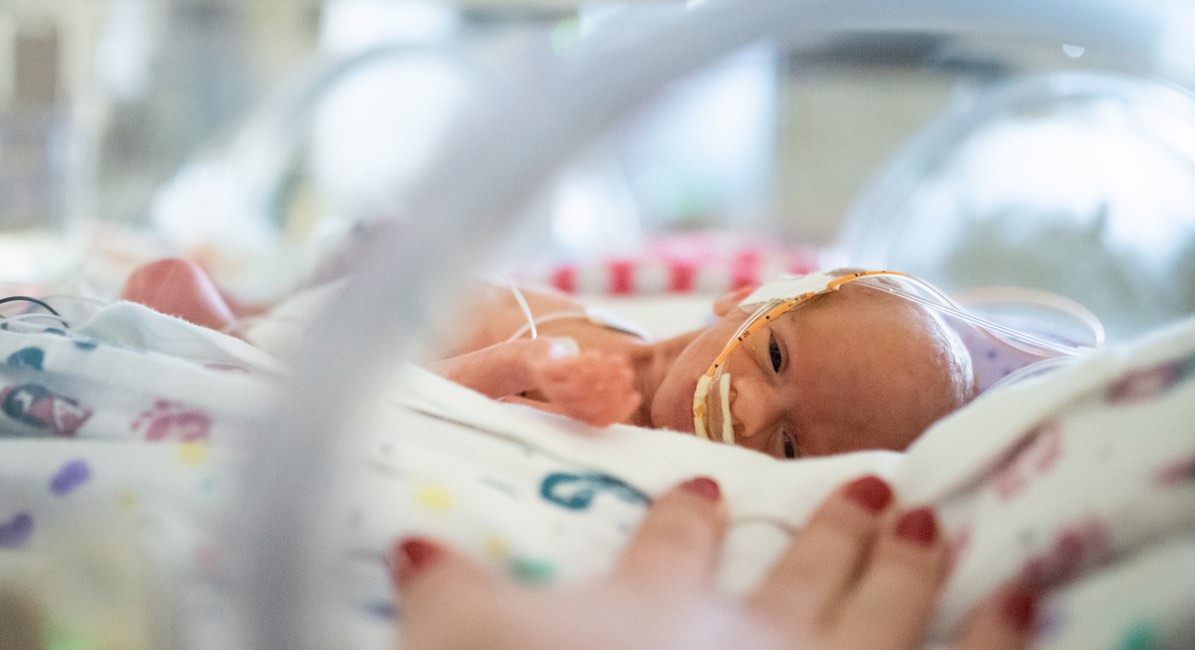A 1981 article in the Philadelphia Inquirer told the story of Jesse Floyd, an abortionist whose attempted abortion of a seven-month-old baby resulted in a live birth. The baby reportedly weighed in at two pounds five ounces and survived outside the womb for 20 days.
In this case, Dr. Floyd was indicted on charges of murder and criminal abortion by a grand jury in the state of South Carolina in August of 1975. Floyd sued to block the prosecution. The 20-year-old mother of the baby, identified in court records as Louise A, delayed her abortion because she had difficulty finding the money to pay for it. The abortion at that time cost $450. Louise had no health problems and neither did the baby, but she chose abortion because she did not want the child to interfere with her college plans.
Floyd injected her with the abortifacient prostaglandin at Richmond Memorial Hospital, where late-term abortions were committed. She was injected on September 4, 1974, and gave birth to her live baby on September 6.
In Louise’s deposition, she wrote:
I started having real bad labor pains again and finally my baby was born. I called the nurse. Then about four or five of them came in the room at the same time. The head nurse came in the same time as the other nurses came in and she told me did I know that the baby was a seven-month baby. I told her no.
One of the nurses said the baby was alive. They took the baby out of the room. He never did cry, he just made some kind of noise.
Floyd, the abortionist, was not there when the baby was born. Instead, a young resident was paged from the cafeteria and attended to the live baby. She detected a heartbeat of 100, clamped and severed the umbilical cord, and sent the baby to the hospital’s intensive care unit. The doctor later said:
It was a shock, a totally unique emergency situation, very upsetting to all of us. Some people have disagreed with me [about ordering intensive care for the baby, because it was an abortion] but that seems to be the only way you can go.
It’s like watching a drowning. You act. You don’t have the luxury of calling around and consulting. You institute life preserving measures first and decide about viability later on.
This doctor followed her instincts to protect the helpless child who was struggling for life. Had Floyd been present instead of this resident, it’s likely the baby would’ve been allowed to die or possibly even killed by direct action, as other abortion survivors have been.
WATCH: Abortion survivors prove that ‘choice’ isn’t just a word… it’s a person
Louise A never went to see her baby in the hospital. However, she called the hospital repeatedly for updates. She said:
I kept calling this nurse. I would call… and get information from them about the baby, and they told me he was doing fine. They told me he had picked up two or three pounds. I started going to school and one afternoon I called home and they told me the baby had died….
Floyd, of course, never visited the infant either.
In October 1979, all charges against Floyd were dropped. County prosecutor James C. Anders said one reason was that the baby’s mother refused to cooperate or testify against the abortionist. Anders said, “I had a reluctant witness. That and the passage of time worked against me.” Although South Carolina law allowed the doctor to be prosecuted, Anders was afraid such prosecution would be unconstitutional.
Floyd, however, did lose his admitting privileges at the hospital and this along with his bad reputation after the abortion caused his surgical practice to “collapse.” He continued to do first trimester abortions. According to the Philadelphia Inquirer, the legal proceedings and the incident had a “chilling effect” on other abortionists in South Carolina. Abortionists began sending their second and third trimester patients out of state.
According to Floyd, “The main thing is the dilemma it puts the other physicians in. It’s just about dried up second trimester abortions in the state. I have to send mine to Atlanta, Washington or New York.”
Apparently, late-term abortionists felt it was less likely they’d get in trouble if a baby was born alive in one of those states. Floyd said that, due to the near prosecution, he would be reluctant to do an abortion after 20 weeks. He never faced any punishment beyond the revocation of his admitting privileges.
Many babies born smaller than the seven-month-old preborn baby have survived. The Hernandez twins, born at 22 weeks, weighed one pound three ounces and one pound one ounce, and survived. Amina Dobson weighed only one pound ten ounces after being born at 24 weeks. She too survived.
Source: Liz Jeffries and Rick Edmonds, “Abortion: The Dreaded Complication” The Philadelphia Inquirer August 2, 1981
“Like” Live Action News on Facebook for more pro-life news and commentary!







